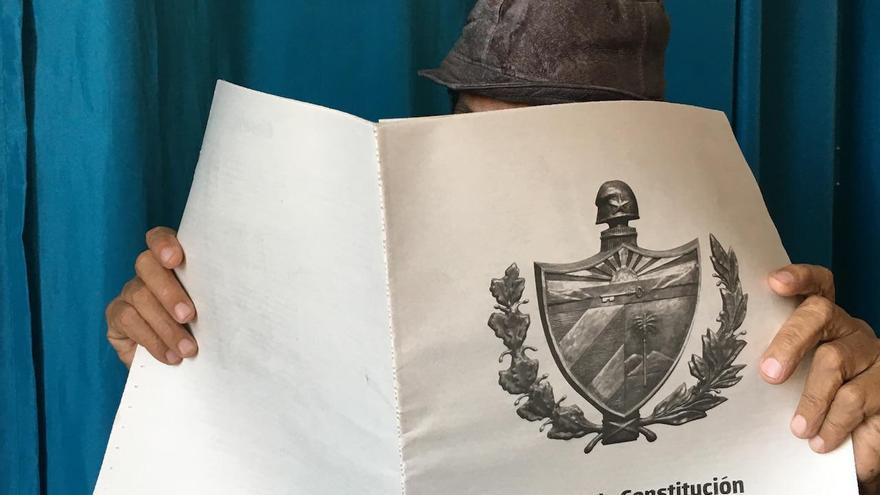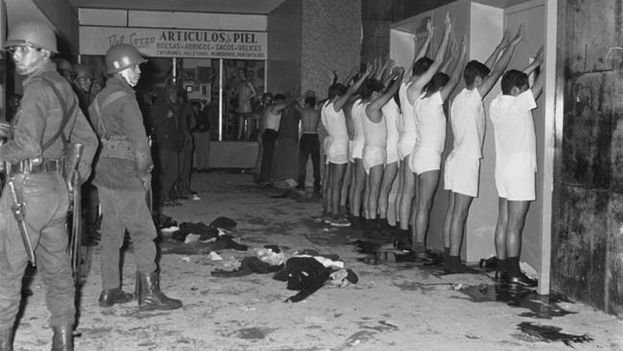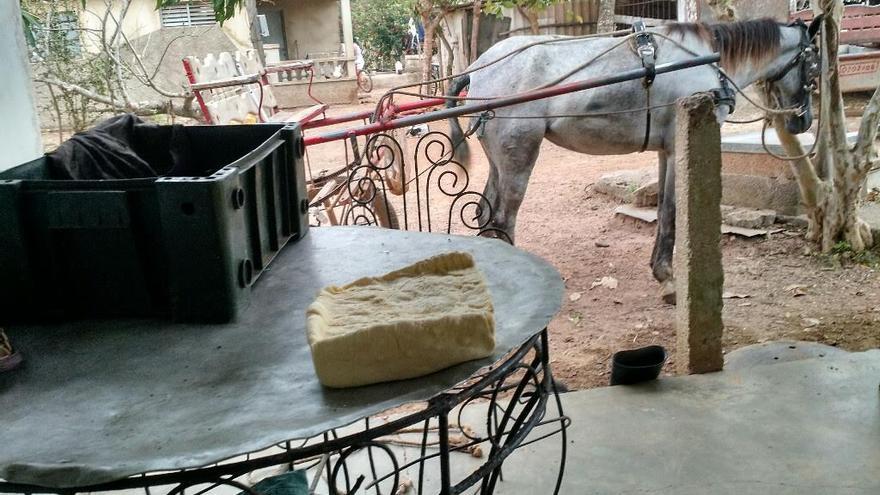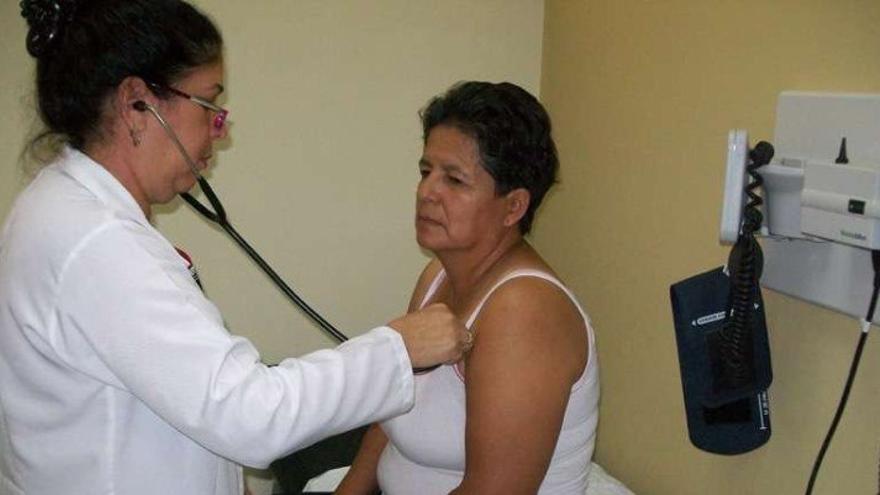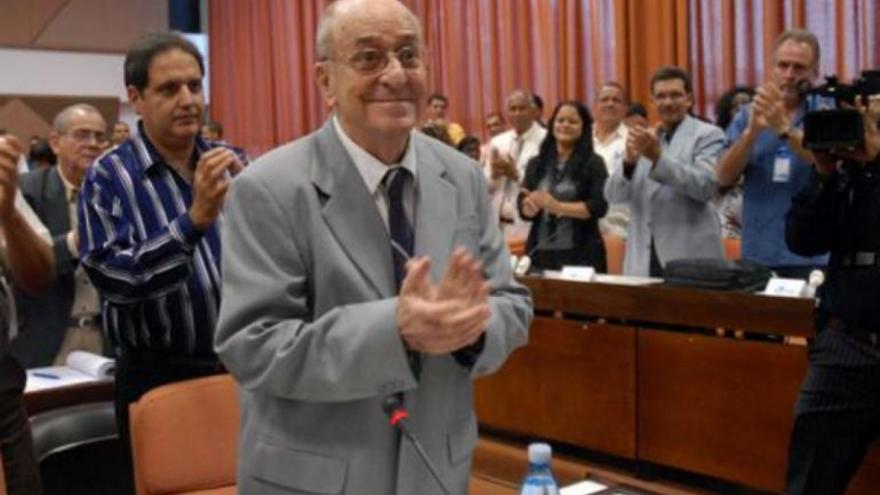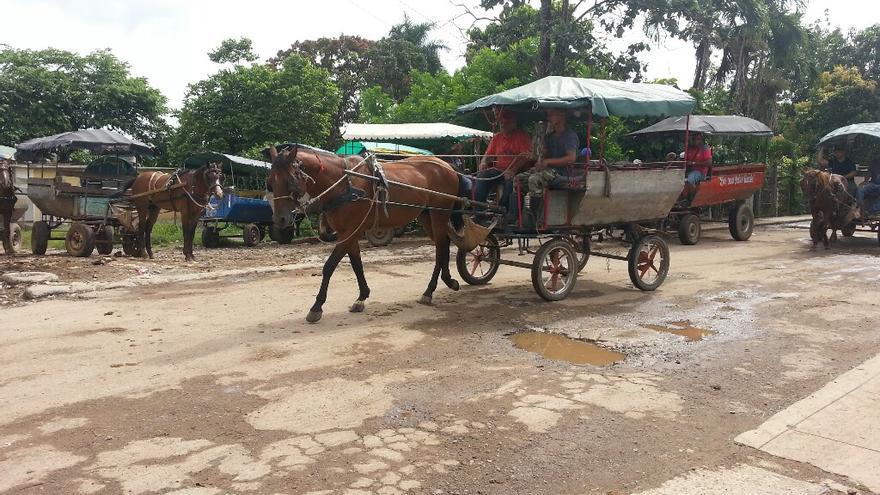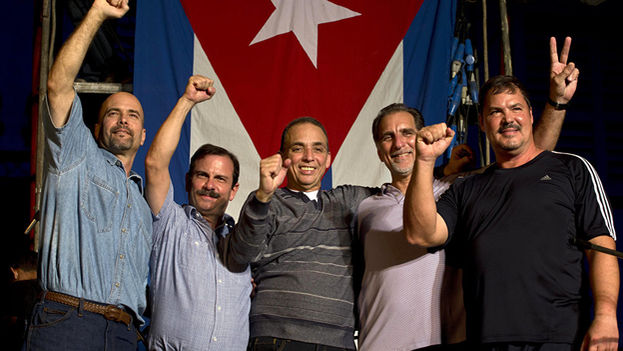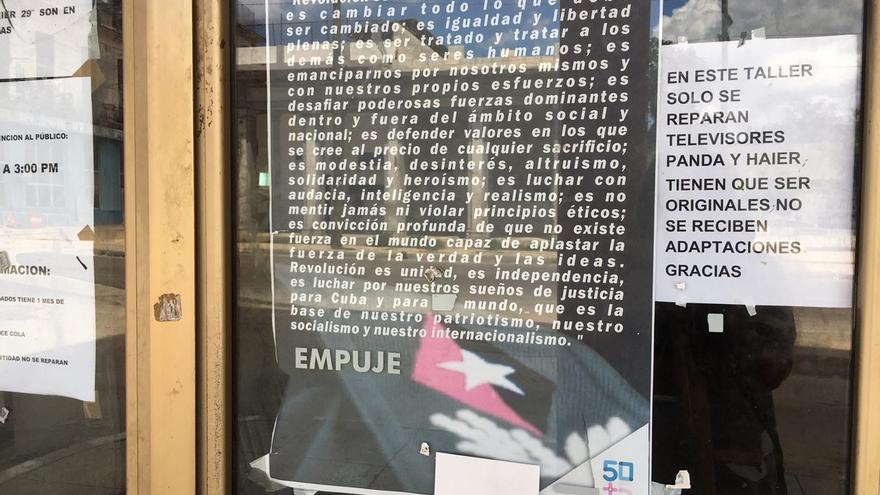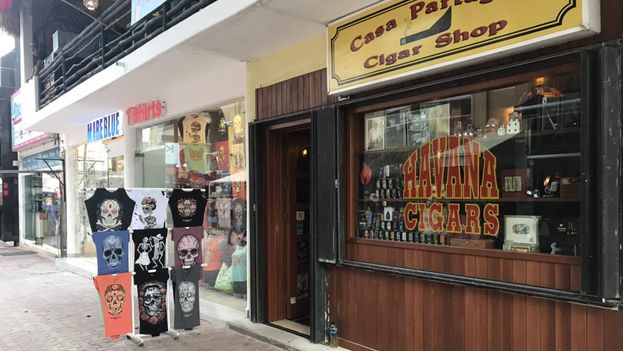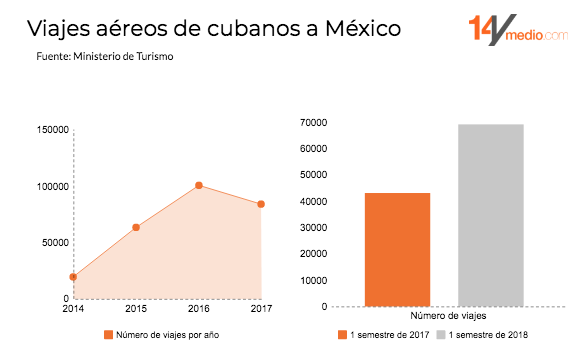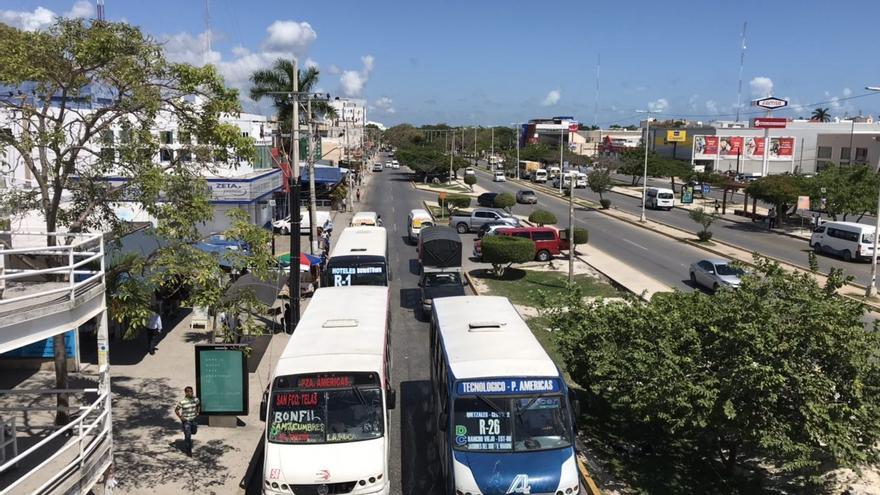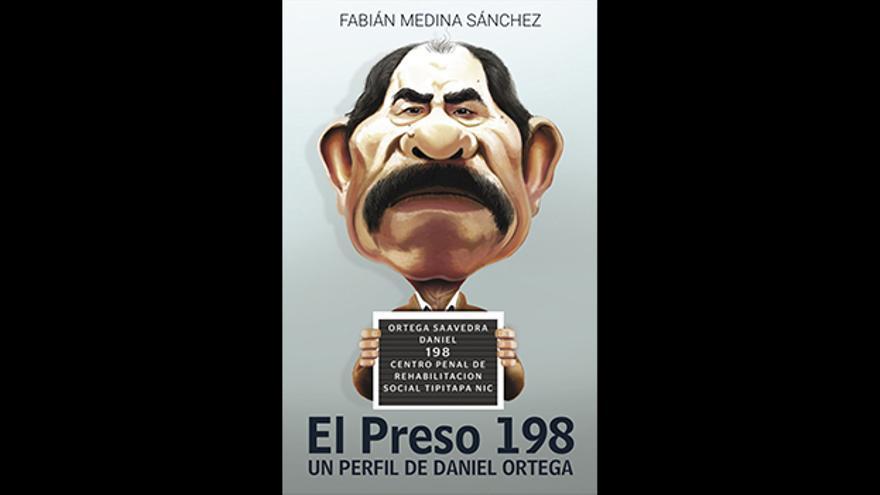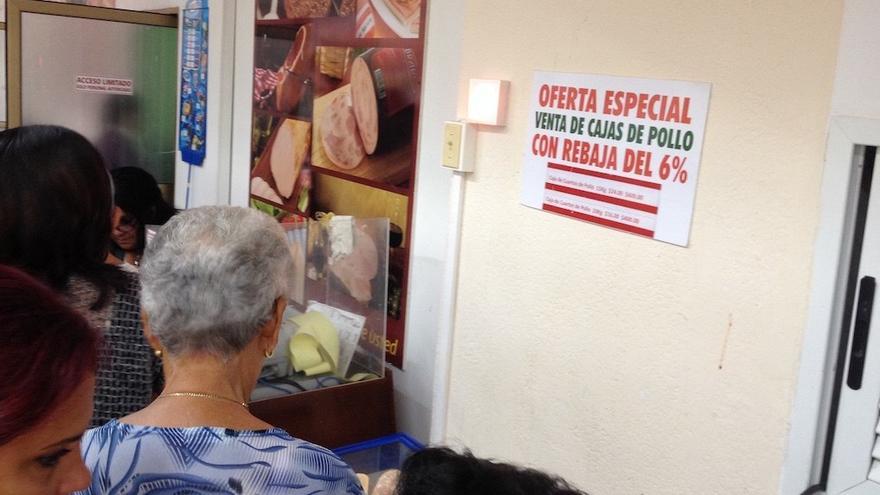
![]() 14ymedio, Marcelo Hernández, Havana, October 2, 2018 — He arrived home hopeful, after five hours in a long line, with a box of frozen chicken thighs that he bought at the Plaza Carlos III center in Havana. When he opened it, the customer realized that it was missing at least six pieces and in their places pieces of ice had been added to fill up the holes and maintain the weight of the package.
14ymedio, Marcelo Hernández, Havana, October 2, 2018 — He arrived home hopeful, after five hours in a long line, with a box of frozen chicken thighs that he bought at the Plaza Carlos III center in Havana. When he opened it, the customer realized that it was missing at least six pieces and in their places pieces of ice had been added to fill up the holes and maintain the weight of the package.
The adulteration of the quantity of a product is a common practice in the network of stores using convertible currency in Cuba, and it has been aggravated by the commercialization of wholesale merchandise. The substitution of part of the food with ice, cardboard, or plastic is hardly surprising anymore to the indignant buyers who see how their money vanishes as they pay for a weight that isn’t the same as the real one.
This Monday, at least four customers protested being robbed of pieces of chicken in the apparently sealed boxes sold at the butcher shop on the bottom floor of Plaza de Carlos, as 14ymedio confirmed. The administration has recommended that shoppers check the weight of the package before “leaving the unit.” However, weighing it doesn’t prevent fraud. continue reading
“It’s no use to check the weight because they take out pieces and put in ice so that the box shows up on the scale at the same weight that it says on the package,” laments Omara, a 47-year-old Havana resident who claims to have suffered the loss of at least eight pieces of chicken thighs from a box that she got at the place. “It’s not just here, it happens everywhere,” she assures.
“They adulterate cleaning detergent by adding water and now we are going to have to develop x-ray vision to be able to detect if a package that seems sealed is missing chicken,” laments Omara. “Even the ones that my daughter buys via the Internet, that emigrants sell, come diluted.”
The loss of a good part of Venezuela’s economic support has aggravated the shortages and some food products have disappeared from store shelves altogether or are frequently missing.
“The boxes have the weight stamped and here there is no time to change anything inside because as soon as we load them off the truck they are sold, we don’t even warehouse the product from one day for the next because right now there is a lot of demand,” responds an employee of the shopping center who asked to remain anonymous. “If when the customer opens them, they’re missing something, it wasn’t here that it was taken out.”
The worker blames the distribution warehouses and possible robberies at the port. “Everyone blames us but this is a problem that also affects us because we have to listen to the complaints and accusations,” he explains.
In the central office of the Cimex corporation in Havana, an official tells this newspaper that it’s a matter of “imported chicken that is sold sealed,” so that the customer finds himself before “the original quality of the merchandise, which has passed through a procedure of wet freezing” which has result in “those pieces of ice that they see when they open the package.”
Nevertheless, he recognizes that “irregularities” have been found in the “surprise inspections that are carried out in the warehouses and receiving centers.” If the protocols are followed “there shouldn’t be any adulteration,” specifies the official, who didn’t want to give his name over the phone.
“Often they say that there is adulteration, but there isn’t.” The administration imposes sanctions if they detect this kind of irregularity, among them the loss of jobs, to avoid eventual removals.
Luis Jorge, 36, a regular buyer of frozen chicken pacakges for a restaurant where he works as a messenger, disagrees with the Cimex official. “If you pay close attention, you can detect where the package was opened to put in the pieces of ice,” he insists. “They’re true masters of fraud, those who do this, but even so they still leave traces.”
Halfway through 2016 the authorities decreed a light reduction in the prices of various foods. Among the products that benefited were pieces of frozen chicken sold in boxes of between 10 and 23 kilograms, a measure that incentivized buying, especially among small private businesses that offer chicken on their menus.
As months passed many families began to get the packages of chicken parts to guarantee supply amidst the shortage. Lines to buy it can last hours and most times one only finds packages of thigh and leg meat. Packages of breasts or whole chickens are the ones that are in shortest supply.
In June of this year the sale of frozen chicken was rationed in stores in convertible pesos in the Villa Clara province and they stopped selling complete packages of the product. Local authorities decreed the measure as a result of the damages caused by the subtropical storm Alberto and presented it as a short-term solution to the shortage of food. Villa Clara residents waited several weeks to be able to buy once again greater quantities of the product.
Cuba imports between 60% and 70% of the food consumed on the island, an operation that costs around $2 billion each year and which has become more complicated with the problems of liquidity that the Island is experiencing. From the United States the foods that arrive most frequently are, precisely, frozen chicken and certain grains.
During his recent visit to New York, the Cuban president Miguel Díaz-Canel met with American businessmen linked with the agricultural sector. “Buying food, which is known to be of good quality, produced by you for us would represent convenience and opportunities,” specified the leader during the meeting.
Translated by: Sheilagh Carey
_____________________________
The 14ymedio team is committed to serious journalism that reflects the reality of deep Cuba. Thank you for joining us on this long road. We invite you to continue supporting us, but this time by becoming a member of 14ymedio. Together we can continue to transform journalism in Cuba.


